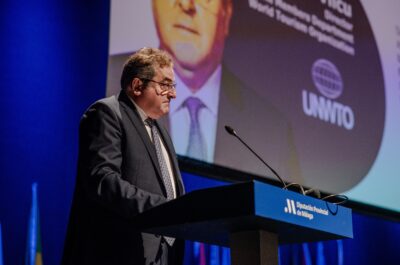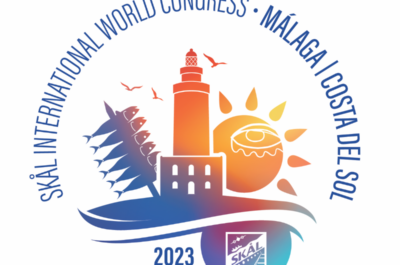Skal International, whose 18,000 members make up the world’s largest organisation covering all sectors in travel and tourism, and with many coming from the senior ranks of the hospitality sector, wants to challenge the industry to ensure that in its desire to gain and retain customers.
The hospitality industry is arguably the oldest in the travel and tourism sector. Starting over 2,000 years ago as camps and waypoints along the caravan routes of the Middle East and Asia, it grew dramatically with the introduction of horse drawn transport followed by rail, the automobile and finally aircraft.
In basic terms the industry has not changed from its beginnings where its focus was to supply the traveller with security and comfort. What has changed and will continue to change is the dynamics of the traveller and the way in which he or she perceives security and comfort.
The industry is now customer driven and all decisions from location selection, financing, development, management and branding must all be based on the customers’ perceived needs and wants that are varied as they are constantly changing.
So what does the hospitality industry need to do to ensure it can still meet the security and comfort of its guests and at the same time honour the human rights of its employees; ensure sustainability and environmental care and show strong social responsibility?
Skal International, whose 18,000 members make up the world’s largest organisation covering all sectors in travel and tourism, and with many coming from the senior ranks of the hospitality sector, wants to challenge the industry to ensure that in its desire to gain and retain customers, through enhanced comfort and security offerings, it also understands the social, environmental and human responsibilities it must meet in today’s world.
States Mok Singh, World President of Skal International, “While no one wants to challenge an organisation’s right to increase profits and returns to its shareholders, we do believe that such growth needs to carry a social and human responsibility as well. If employees are on or below minimum wages and have little or no input in the development of their roles in the industry, nor basic protection in terms or human rights, it does not reflect well on the Industry as a whole.”
“We are glad to note that the industry appears to be placing great emphasis on being seen to be green. A similar emphasis needs to be encouraged on promoting the well being of its employees and surrounding community”
“We need to show stakeholders, who include guests, that the employees in the organisation are highly valued in terms of a fair remuneration for their work, as well as the communities they live in.”
The modern guest is becoming very aware of this, particularly in resort regions that employ local communities. Many are starting to question what is being done for the communities and those organisations that include them in their operational plans and budgets will certainly attract guests who are willing to pay. Like quality, humanitarian actions can result in a higher yield.
The industry continues to prove it is acting responsibly in the environmental and sustainability arenas. It is not good enough to ask guests to save water or decide whether they want their sheets changed daily or weekly and claim a “green tinge”. Organisations need to work from the bottom up and fully audit their policies and practices to identify areas that can be improved to meet sustainable and environmentally safe practices. There are a number of global organisations such as Diversey and Green Globe that work with the industry to audit their practices from building design and development through to the use of environmentally safe cleaning products.
The bottom line is these actions can also show a healthy lift in profits through reduced energy costs and a lower carbon footprint.
Skal International, following the United Nations declaration of 2002 as the Year of Ecotourism and the Mountains, launched the Ecotourism Awards in the same year, to highlight and acknowledge best practices around the globe.
The awards encourage the conservation of the environment in order to promote tourism and travel and also serve the purpose of acquainting the world with this need to put an emphasis on the importance of the interaction of the physical, cultural and social environments, the traveller’s responsibility and the need for active community participation in Ecotourism.
Mok Singh goes on to say “Skal challenges those in the hospitality industry to enter these awards and prove, not only to the industry, but the wider community, that they really care about the environment.”
“I would also like to see the day when the first “organic” hotel or resort is launched. Imagine a property built from natural, reusable material, or even better recycled material, that fits into its surrounding environment with the lowest possible visual and carbon footprint. A property that empowers its employees and the community it lives in; buying products and services from that community and if they aren’t available helping the community to develop the systems and infrastructure to produce them. That would be a powerful template for the future and one, I firmly believe, we need to aspire too.”
Theodore is the Co-Founder and Managing Editor of TravelDailyNews Media Network; his responsibilities include business development and planning for TravelDailyNews long-term opportunities.
















































































































































































